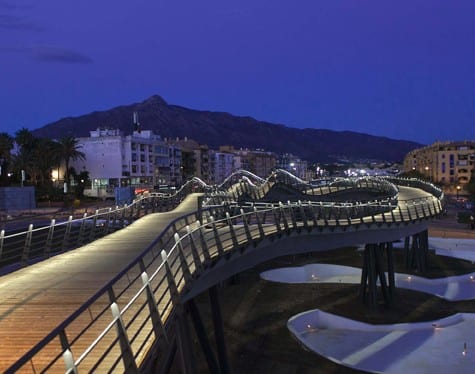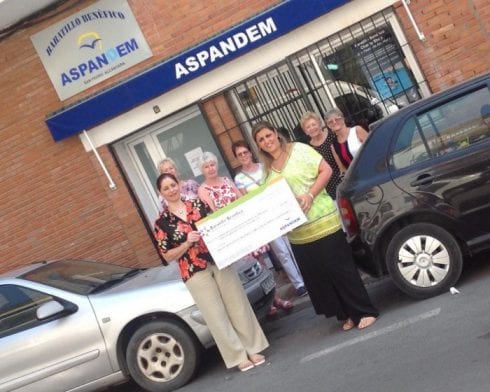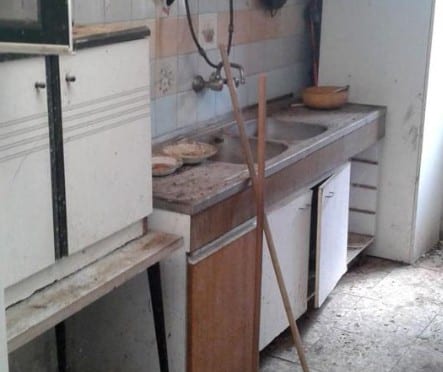• Click to download our FREE guide to San Pedro de Alcantara and Guadalmina
THERE are five towns called San Pedro in Spain but there’s only one San Pedro de Alcantara. And now the town that has hid its light under a bushel for so long is standing up to be counted.
Not content to remain one of the Costa del Sol’s hidden gems, the 35,000-strong municipality crouched in the Serrania de Ronda’s foothills is stepping boldly into the future and carving a name that is glittering as brightly as either of its illustrious neighbours.
The tree-lined promenades and outdoor spaces offer a refined brand of tranquility and the town has retained a strong Spanish core that has been lost by other coastal resorts.
For motorists speeding along the A7, San Pedro may be most synonymous with the viaduct burrowed beneath it. But instead of going underground, though, it’s well worth ‘going over the top’ to explore this fascinating corner of the Costa.
In fact, the tunnel is part of a project of urban improvement that is hoisting San Pedro’s profile high. Its completion – after a torturous five-year gestation – has shaved valuable time off the local commute and opened up access to the town.
“What we like about San Pedro is it is still very Spanish,” said Hostal Plaza owner Karen Wynn.
“It still feels like Spain, although we have lots of international restaurants. They are spending a lot of money on the town and we have returning guests who say how much they can see things improving.”
The most striking manifestation of these improvements rises before you as you pull off the motorway. San Pedro’s elevated iron walkway feels like a bold statement of intent.
Part of the €6 million boulevard project that has been completed this year, the walkway weaves over cool, clear pools of water, lifting San Pedro’s citizens up and offering a first-rate view of the area’s most prominent mountain, La Concha.
This new communal space is hugely popular and a testament to good civic planning that is putting Sampedrenas first.
“The boulevard is fantastic,” says Anne McArthur, treasurer of San Pedro’s Art Club.
“The facilities for children are amazing. San Pedro is really up and coming and the boulevard is bustling in the evening. It used to look quite rundown, but it’s really up and coming.”
 No surprises with six play areas, a skate park, an 800-capacity amphitheatre and synthetic skating rink.
No surprises with six play areas, a skate park, an 800-capacity amphitheatre and synthetic skating rink.
As Marbella’s new mayor Jose Bernal tells the Olive Press: “It has been an amazing civil project and San Pedro is now a very stand alone town, in charge of plenty of its own decision making.
“When the so-called Guadaiza Plan – next to the Ronda road – starts to come together it is going to further revolutionize the place.”
The huge area of development that sits alongside the Guadaiza river is set to have a series of private projects, including a shopping centre, hospital and even a university.
“There will also be plenty of entertainment for families and kids and we envisage the first projects being finished within the next couple of years.”
This spirit of renewal has long been woven into San Pedro’s DNA.
General Manuel Gutierrez de Concha, the Marques del Duero, purchased the barren colony in 1857. With malaria scything through the local populace and poor irrigation from the surrounding Guadalmina, Guadaiza and Guadalmansa rivers, the Marques introduced a series of innovative agricultural reforms including a training school for local farm workers, bridges, dams and state-of-the-art agricultural machinery.
His statue stands next to the old town, keeping paternalistic vigil over San Pedro, first foot forward with his back to Marbella.
The old general’s positioning may cause Sampedrenas to smile wrily. The two neighbouring towns enjoy a friendly rivalry that has even led to competitive cocktails – the Marbella and the San Pedro, both unveiled last month. And the plucky civic upstart has been shaking things up for big sister Marbs in other ways.
In Marbella’s corridors of power, San Pedro’s own separatist political party, Opcion Sampedrena (OSP) is doughtily fighting the town’s corner.
OSP, born in 2006, has lobbied unsuccessfully for years for San Pedro to cede from Marbella Town Hall. Now that could all change.
They became ‘kingmakers’ this summer after the election of two OSP councillors helped them form a four-party coalition government to oust the PP.
The push for greater autonomy from Marbella may occupy local politicians but, elsewhere, the towns are fusing closer together.
“It is certainly going very well so far,” explained mayor Bernal. “We are all working together in relative harmony.”
It has certainly helped that a new cycle route now links San Pedro to Marbella, while other joint projects are on their way.
 But while the cycle routes map the town’s arteries, San Pedro’s heart, like so many Spanish towns, is its main plaza. The Iglesia de San Pedro’s white-washed portico and tobacco-coloured trim command the Plaza de la Iglesia.
But while the cycle routes map the town’s arteries, San Pedro’s heart, like so many Spanish towns, is its main plaza. The Iglesia de San Pedro’s white-washed portico and tobacco-coloured trim command the Plaza de la Iglesia.
The triple-arched naves inside the church withstood a fire during the madness of the Civil War and the building’s enduring elegance and design are another legacy of the Marques del Duero’s reign. (‘No mobiles inside,’ the front entrance sign sternly commands. ‘God doesn’t use them’.)
In the evening, the young and the old of San Pedro congregate on shaded benches around the statue of St Peter, and the square bustles with a market on Saturdays.
Strike north from the old town, though the industrial estate, to reach the wide expanses of the Parque de los Tres Jardines. A long, winding pathway leads walkers through this  airy, open space under the gaze of La Concha’s vertiginous peak.
airy, open space under the gaze of La Concha’s vertiginous peak.
If you’re feeling the heat, a trip to San Pedro’s Wakeboard Centre will cool you down and re-energise you too, as the taut cable propels you, body and board, through the water.
Those yearning for the more briney caress of the Mediterranean should head south along the shady Avenida del Mediterraneo which sweeps down towards that vast blue expanse.
The land between the boulevard and the sea was vacant until the 1990s. Today the impressive array of recent developments include a world-renowned paddle and tennis club that hosts international tournaments.
 The beach’s long golden strip stretches on towards Puerto Banus. Parallel to it, the Avenida del Mediterraneo fans out along the front, providing a catwalk for locals and tourists strolling arm in arm, or stopping off for a drink at one of the the waterfront chiringuitos.
The beach’s long golden strip stretches on towards Puerto Banus. Parallel to it, the Avenida del Mediterraneo fans out along the front, providing a catwalk for locals and tourists strolling arm in arm, or stopping off for a drink at one of the the waterfront chiringuitos.
The beachfront also reveals clues to the presence of less recent visitors – a Roman baths, dating from the third century, which has withstood the ravages of time thanks to its compound structure of limestone, sand and pebbles. Next to it, a 16th century watchtower looks out towards the passing boats and water skiers.
Set back from the waterfront action, you’ll also find relics of a 6th century Paleo-Christian burial site, the Vega de Mar, unearthed in the 1930s.
 Walking along the beachfront, you can see why San Pedro’s forefathers chose this spot as their final resting place. The Mediterranean laps against the shore, couples amble along the wide paseo and fishermen’s cabins huddle next to boats that ferry fresh sardines to beachside restaurants.
Walking along the beachfront, you can see why San Pedro’s forefathers chose this spot as their final resting place. The Mediterranean laps against the shore, couples amble along the wide paseo and fishermen’s cabins huddle next to boats that ferry fresh sardines to beachside restaurants.
As the shadows lengthen and the street lamps begin to twinkle, head to Calle Marques del Duero, the old town’s main drag, where everyone meets up after work for drinks and tapas.
Those looking for more hearty sustenance are well-served by the burgeoning local restaurant scene. And with San Pedro’s Feria the last one of the year on Spain’s action-packed fiesta calendar, the town really does have the final word on fun.
• Click to download our FREE guide to San Pedro de Alcantara and Guadalmina








